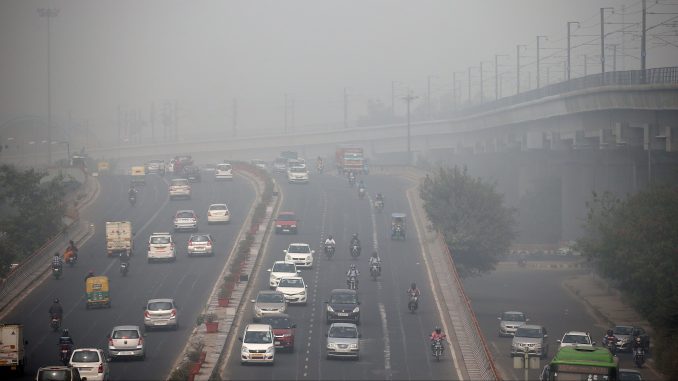
New Delhi: A green body on Tuesday called for the implementation of an emergency plan to address air pollution, after a Lancet Journal report said it was the second leading risk factor for health loss in India last year.
Expressing shock at the loss of healthy live years due to illness from growing air pollution in Delhi and other parts of the country, Centre for Science and Environment (CSE) said all cities of India should be mandated to implement clean air action plan in a time-bound manner and fix responsibility to meet clean air standards.
“Ensure massive energy transition to bring clean fuels in transport, industry, power sector and in households and paradigm shift in waste management to control waste burning, construction waste and crop waste,” it said.
Disease burden due to air pollution remained high in India between 1990 and 2016, as it caused non-communicable and infectious diseases like cardiovascular, respiratory diseases and infections, it said.
“This strong evidence makes it clear that comprehensive and long-term strategies for reducing air pollution are critical to protecting public health,” the CSE said in a statement.
“At the same time they note that this is likely an underestimate, there are many exposures for which the data is not yet strong enough to quantify the effects,” it said.
The CSE also referred to another most recent study on children in Delhi released recently in the Journal of Indian Pediatrics that provides powerful evidence to show that children growing up in polluted environments of the national capital have reduced lung growth compared to the children in developed countries like the US.
While both Indian and US children have nearly the same size till the age of about eight years when the lungs complete their normal physical growth, subsequent growth show progressive difference between the two countries.
This study has been done by Prof SK Chhabra, former Director-Professor at the Vallabhbhai Patel Chest Institute and now Head of Department of Pulmonary Medicine, Primus Hospital in New Delhi.
“If this does not wake us up to the health emergency,what will? Those who are in denial of environmental pollution-related deaths and illness in India should understand that the scary death tally and illness of Indians and children makes a mockery of India’s growth story,” Anumita Roychowdhury, Executive Director, research and advocacy, CSE said.
“India will have to do drastically a lot more to reduce pollution exposure and not less of it. It will be criminal not to act on the mounting health evidences and ask for more evidences from our own children, elderly and vulnerable. Indian lung is not different from others,” she said.
Source: Firstpost

Leave a Reply